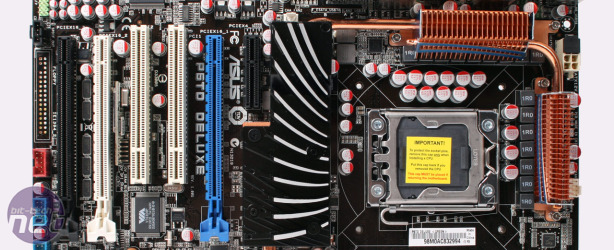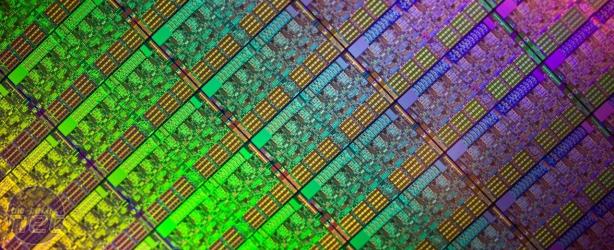Stock Speed Performance Analysis
There's no such thing as a slow LGA1366 CPU, so it didn't take long to benchmark the Core i7-970 at its stock frequency, especially as it spent most of the time Turbo Boosted to 3.33GHz rather than remain at its nominal 3.2GHz.Unsurprisingly, due to the similarity in their specs, the i7-970 proved barely any slower than the i7-980X EE at stock speeds, turning in a very respectable overall score of 1,984 in our Media Benchmarks, compared to 2,002. Both CPUs are much faster than AMD's fastest 6-core CPU, the Phenom II X6 1090T Black Edition which scored a comparatively miserable 1,367 overall. However, the X6 1090T BE costs a fraction of the price of the two Intel 6-core CPUs.
There was also very little performance difference between the i7-970 and i7-980X EE in our test games, with neither of these 6-core CPUs proving any faster than the cheaper quad-core processors.
Overclocked Performance Analysis
As we mentioned earlier, we managed to overclock the i7-970 to 4GHz, a disappointing 0.8GHz improvement over its stock frequency. In contrast, we managed to overclock the i7-980X EE from 3.33GHz to 4.4GHz and the i7-930 from 2.8GHz to 4.3GHz. While 4GHz may have been considered a good overclock for an original, C0-stepping i7-920, it's run of the mill for a modern LGA1366 CPU.As a result of the poor overclock of the i7-970, the far cheaper (and quad-core) i7-930 was able to close the gap with it when both chips were overclocked; the former scored 2,328 in our Media Benchmarks while the latter managed 2,332 points overall. The i7-930 was also a few frames per second faster when gaming, thanks to its higher frequency when overclocked.
Arguably the real winner of these tests is the i7-980X EE, which, thanks to its unparalleled overclock to 4.4GHz, is an absolute beast. It shouldn’t take an astrophysicist to work out that the 6-core i7-970 running at 4GHz should be much slower than the 6-core i7-980X EE at 4.4GHz, and this was indeed the case. In our Media Benchmarks for example, the overclocked i7-980X EE had a comfortable 11 per cent lead, while in Cinebench this lead extended to a staggering 15 per cent.
Conclusion
Due to the high price of the i7-980X EE, a cheaper 6-core such as the i7-970 was a highly anticipated processor in the bit-tech office. Unfortunately, despite its non-EE branding, the i7-970 is still a very expensive CPU.Those readers hoping for a 6-core chip at a much lower price than the i7-980X EE are going to be bitterly disappointed: at its launch, the i7-970 retails for around £730, only £85 less than the £815 i7-980X EE.
At these kinds of prices, £85 isn’t much of a difference at all, so it all comes down to performance. While it’s true that both CPUs perform very similarly out of the box, the i7-980X EE is a monster overclocker that pummels the i7-970 and its relatively meagre maximum overclock. Given that overclocking is such an important consideration for CPUs, for it to be worth considering, the i7-970 would have to cost around £500. Unfortunately Intel already has two CPUs at that price point that it's struggling to sell; the unpopular quad-core i7-950 and i7-960.
This means that - for the first time ever - we’re actually going to recommend buying an Extreme Edition over a cheaper, standard-edition CPU of the same family. The Core i7-980X Extreme Edition still stands secure as king of the hill while the i7-970 slinks off with its tail between its pins.
- Performance
- x
- x
- x
- x
- x
- x
- x
- x
- -
- -
- 8/10
- Value
- x
- x
- x
- x
- -
- -
- -
- -
- -
- -
- 4/10
- Overall
- x
- x
- x
- x
- x
- -
- -
- -
- -
- -
- 5/10

MSI MPG Velox 100R Chassis Review
October 14 2021 | 15:04











Want to comment? Please log in.